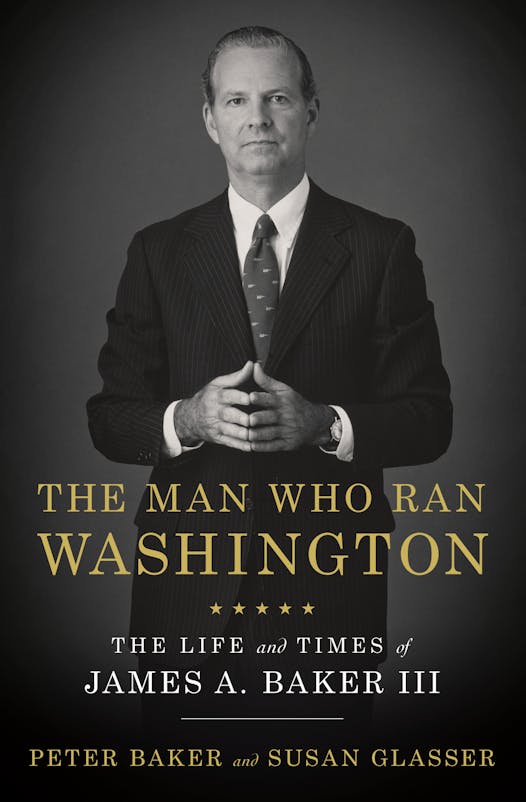Jim Baker "wanted to be remembered for being a statesman," recalled Derek Chollet, a State Department policy planning officer who helped his former boss write his memoir. "He didn't want to be remembered as a political guy."
Indeed, as the immensely informative, nuanced and judicious biography "The Man Who Ran Washington" reminds us, James A. Baker III, a Houston lawyer descended from three generations of lawyers, was one of the most influential unelected public officials of the last quarter of the 20th century. As Ronald Reagan's secretary of the treasury, he presided over a far-reaching reform of the tax code. As George H.W. Bush's secretary of state, he played a pivotal role in the end of the Cold War, the reunification of Germany and the first Gulf War.
That said, Baker was also the preeminent political fixer of his era. He ran presidential campaigns for Gerald Ford, Reagan and Bush 41 (his best friend), served as chief of staff for Reagan and helped George W. Bush win the Florida recount. Even as he cultivated a reputation for civility and pragmatism, the authors suggest, Baker was a ruthlessly competitive take-no-prisoners partisan, whose use of culture war wedge issues and occasional choice of "self-aggrandizement over principle" helped usher in the "us against them" tribalism of 21st-century American politics.
The authors — Peter Baker (no relation), chief White House correspondent for the New York Times, and Susan Glasser, a staff writer for the New Yorker — point out that Baker brought little or no expertise in economics or foreign policy to his positions at Treasury and State. He made up for his gaps in knowledge, however, with almost superhuman preparation, an "intuitive feel for negotiations" and an instinct "for how to entice reluctant players to make compromises."
Rooted in a thorough review of published sources, government records and interviews with 170 people (including three former presidents, Cabinet officers, White House aides, foreign officials, family members and 70 hours with Baker himself), "The Man Who Ran Washington," perhaps understandably, is not always able to determine the credit Baker deserves for domestic and foreign policies. The authors do not adequately explain the significance of currency reform and the revenue-neutral tax legislation. They lay out but do not always sort out foreign policy differences between Baker and George H.W. Bush.
Well into his 80s, and now the Republican establishment's "eulogist-in-chief," Baker, the authors conclude, now lives with criticism of his Cold War policies, which some regard as too reactive and cautious, and of his political endeavors, including the Willie Horton ad and questions about Bill Clinton's patriotism. Nonetheless, Baker and Glasser imply, his record at the State Department is likely to stand up rather well to the scrutiny of historians.
Glenn C. Altschuler is the Thomas and Dorothy Litwin Professor of American Studies at Cornell University.
The Man Who Ran Washington
By: Peter Baker and Susan Glasser.
Publisher: Doubleday, 732 pages, $35.

Event will celebrate 20 years of Home of the Month contest and offer peek at top residential projects

Minnesota and other Democratic-led states lead pushback on censorship. They're banning the book ban

Some of comedy's biggest names converge on the Twin Cities this weekend


